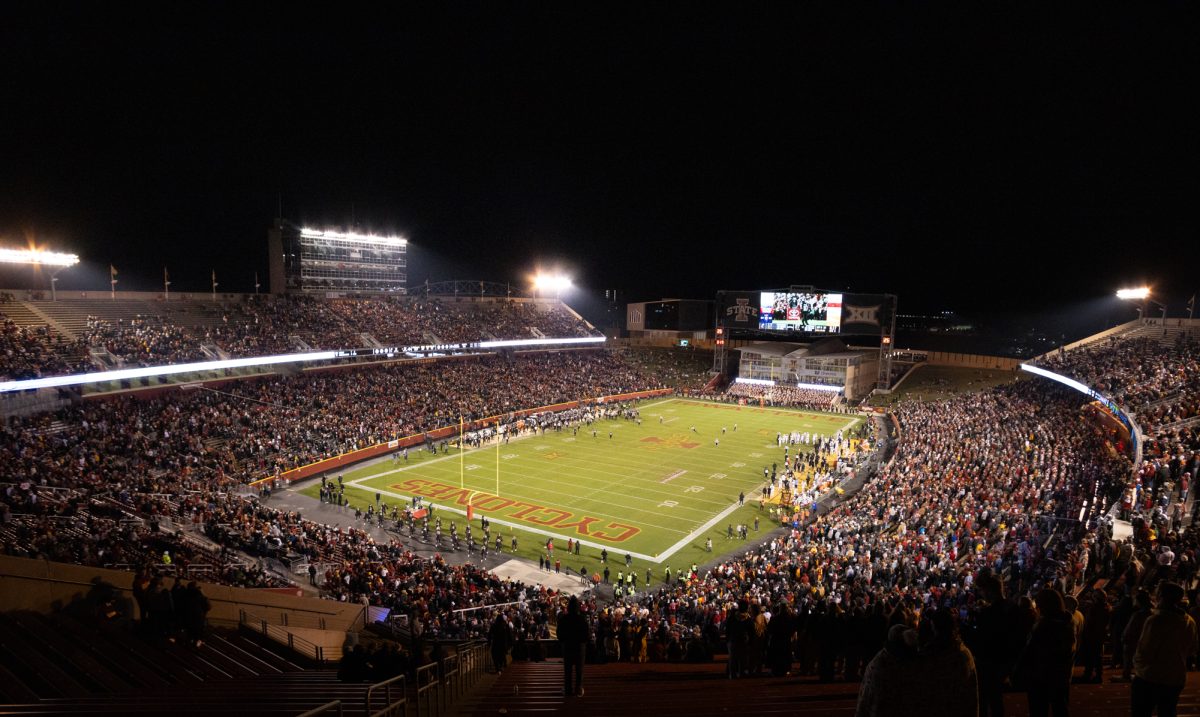COLUMN: Don’t let Iraq turn into another Lebanon
October 10, 2004
By James Peterson
Iowa State Daily columnist
Secretary of Defense Donald Rumsfeld spoke to troops in Iraq on Sunday about how the battle against insurgents is going. He stated three simple facts: 1) The United States is militarily superior to any foe in the Middle East. 2) There is no hope of winning a conventional war against the West. 3) The only hope is to use unconventional methods such as the almost pass‚ car bomb to muck up the political situation enough to gain a troop withdrawal.
Sen. John Kerry also recently spoke about the situation in Iraq at a recent press conference, saying, “If the president just does more of the same every day and it continues to deteriorate, I may be handed Lebanon, figuratively speaking.” This is in essence the feeling of both sides. One that says we’ll have accomplished nothing if we give up now and one that says let’s get out now before things get worse.
Kerry’s comparison to Lebanon is particularly interesting because of how it demonstrated the “dos” and “don’ts” of Middle East occupation.
For those of you who might be wondering, Lebanon was formed by the French (taking inspiration from ancient Phoenicia) when they and Britain carved up the Ottoman Empire after World War I. Lebanon obtained independence in the early ’40s. Before it was ravaged by a civil war that lasted from 1975 to 1990, it was considered a tourist attraction.
It had a Mediterranean climate with snow-capped mountains and sunny beaches — it wasn’t the Lebanon those growing up in the late ’80s and early ’90s knew — where Beirut was always considered a bombed-out hellhole.
Former President Ronald Reagan sent troops into Beirut in 1982 to buffer the PLO’s departure. After a quick withdrawal, a political assassination precipitated an Israeli occupation and led to the massacres at Shatila and Sabra. Partially out of guilt, the U.S. sent troops back into Lebanon to help maintain the peace.
This oddly parallels the larger actions of the United States in Iraq, where after the quick liberation of Kuwait the United States ended the first Iraqi war. Again, there could be an unspoken guilt about the suffering of the Iraqis because of that decision. And again, as we have returned, we have found ourselves stuck in an unforeseen predicament.
In April 1983, the U.S. embassy in Beirut suffered an attack from a suicide bomber driving a Chevy truck that killed more than 50 people. In October of the same year, 241 Marines were killed by a dump truck full of explosives. By March 1984, the Marines had been completely removed from Lebanon. Our withdrawal from Lebanon helped the mission amount to nothing.
Lebanon was not helped at all by our presence and did not find peace any faster for it. What’s worse is that it showed those terrorists in Syria, Iran and across Arabia that the United States does not have a stomach for this unconventional way of fighting and that it could be used as an effective tool to get concessions from the Americans.
Now in Iraq, we face the same crisis of fight or flight. The suicide bombers are coming fast and furious. Many want to cut our losses and flee, to set a deadline for the removal of troops. But what will we have accomplished by leaving too soon?
We will have stirred up the extremists in the Arab world without providing an alternative to their ideals. To leave Iraq unfinished is to reduce the more than 1,000 American casualties to meaning nothing, or worse, to inspiring terrorists to attack a weak America.
The comparison to Lebanon is a good one. We should remember not to make the same mistakes again.
The most important lesson from Lebanon is this: Don’t back down from terrorists.





